
views
Acknowledging Your Fears
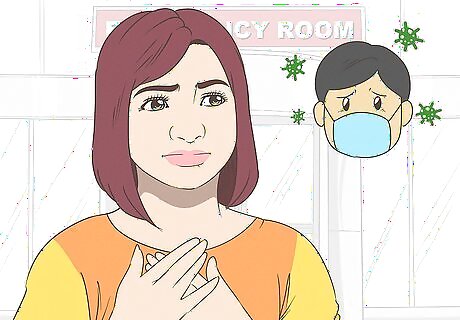
Figure out your main fear. Having a fear of hospitals is a very common phobia. There are many reasons that people might be scared to enter these buildings. For example, some people are afraid of blood. Others might fear being separated from friends and family during a procedure. Reflect on what it is that you actually fear. Are you nervous about procedures that can cause pain? Do you have a fear about not waking up from surgery? Figuring out what you are scared of is the first step in finding ways to cope. Identify your particular fear and acknowledge it. Admit your fear to yourself. Try saying, "Hospitals make me anxious because I worry about being around sick people."

Identify your symptoms. There is a difference between getting nervous around hospitals and having a phobia. Having a phobia can be as debilitating as any physical ailment. Pay attention to your symptoms so that you can figure out whether what you are coping with is nerves or a more serious disorder. Generally, people with phobias will experience physical symptoms when having an attack. That means that when you are near or in a hospital, your body will react in a certain ways. Phobias cause different reactions in everyone. Some common symptoms are heart palpitations, chest pains, and dizziness. You might also experience nausea or difficulty breathing. Feeling weak and having "fuzzy" vision are also common symptoms.

Understand panic attacks. Many people who have a phobic condition have to cope with panic attacks. A panic attack can cause frightening emotions and physical reactions. Understanding panic attacks can help you cope with your fear or phobia. A panic attack makes it very difficult to think rationally. During an attack, it can be difficult to separate reality from things that are not actually happening. For example, a panic attack might cause someone to feel like they are having a heart attack. It can also cause you to lose control of your emotions. If you have experienced a panic attack, it is a good idea to consult a medical professional. This may indicate that you are dealing with a phobic condition rather than mild anxiety.
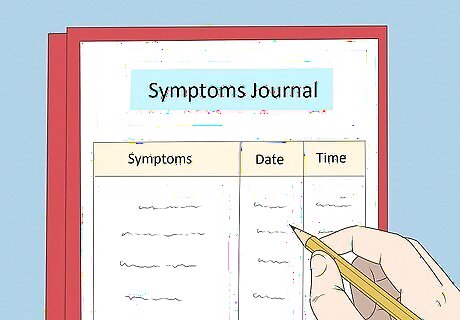
Keep a journal. In order to fully confront your fear, it is useful to gather as much information about your fear as you can. Writing down attacks and particular events can help you keep track of your feelings. Try keeping a journal to track your symptoms. If you are near or in a hospital, write down your reactions. Include the circumstance of your visit and who was there with you. Track your symptoms. For example, if you experienced blurred vision, write it down. Look for patterns. For example, you might notice that driving by a hospital does not cause a reaction, but walking by a hospital does.
Choosing a Treatment Option
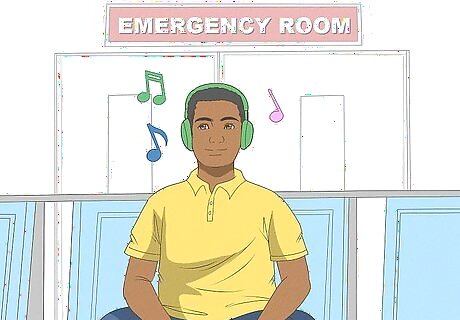
Start with small steps. It is entirely possible that you can overcome your fears by making some changes to your mindset. If you don't feel like you are suffering from a full-blown phobia, you can make some lifestyle changes that might really help. Try walking by a hospital. Take a friend with you if you are wary. Go into the cafeteria of a hospital and have a cup of tea. This will help you adjust to being in the building. Sit in the waiting room. Take a book or your headphones so that you can distract yourself from the thought of actually being in a hospital.

Find a counselor. If you are suffering from a more severe case of anxiety, you might need professional help. Don't worry, that's completely normal. Consider finding a therapist to help you work through your fears. Look for a therapist who specializes in overcoming fears. You can generally find this information by looking at the website. You can also call the office and ask for information. Ask close friends or family for a recommendation. If someone you know has a therapist they love, that's a great place for you to start. Ask for an initial consultation. You want to make sure you feel comfortable with the therapist before committing to multiple sessions.
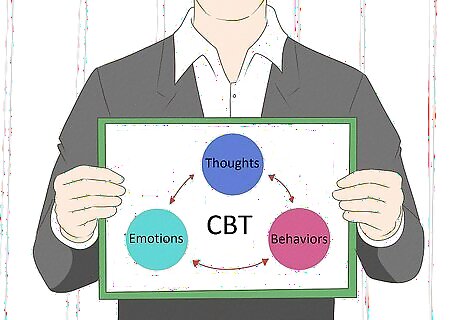
Try different types of therapy. There are many ways that therapy can help you overcome your fears. For some people, talk therapy is the best choice. This essentially means that you will talk through your emotions extensively with your therapist. Your therapist might also recommend Cognitive Behavioral Therapy (CBT). This will help you learn to replace negative behaviors and thoughts with positive ones. For example, CBT might help you learn to focus on the healing aspects of hospitals. It has been found to be very successful in helping people to overcome fear of medical treatments.

Consider medication. Some people might need additional treatments in addition to therapy. There are several types of medication that can help you cope with your fears. You might need medication to help you handle a severe phobia. Talk to your doctor. You can ask specifically about anti-anxiety medications. Some medications can be used situationally. This means that you would only take a dose when you were suffering from an attack. Ask your doctor about possible risks and side effects. Make sure to follow all instructions for medication.
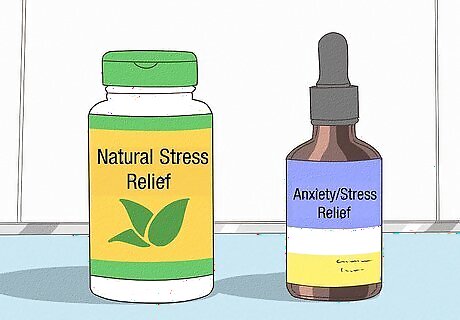
Use alternative medications. Some people choose to use alternative treatments to help overcome their fears. There are several supplements that you could try. Talk to your doctor before trying any new treatments. You might see products labeled "Natural Stress Relief" or something similar. Many drug stores and other retailers sell herbal or natural remedies. Many people find it appealing to use a natural remedy. It's important to remember that the FDA does not regulate these products in the same way it monitors foods and prescription drugs. Make sure to ask your doctor before purchasing anything.
Finding a Support System

Rely on friends and family. Dealing with a fear can feel overwhelming. You might feel a range of emotions, including anxiety or even embarrassment. You could even feel the urge to withdraw from friends and family. Resist the urge to isolate yourself. Instead, ask your friends and family to support you. Be honest. You can say, "I'm having a really hard time dealing with my fear of hospitals. I could use some emotional support." Ask for help finding a solution. You can try saying, "You know me really well. Can you help me brainstorm some ways to feel better?"
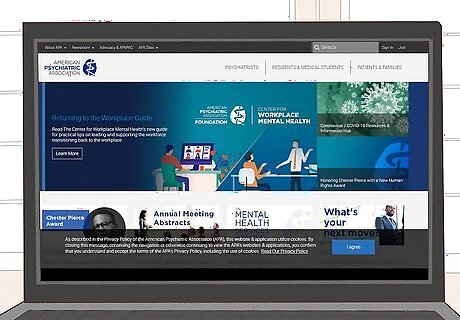
Find a support group. Sometimes it is helpful to talk to others who are in your same situation. There are support groups for people in all situations. Look for a group that supports people as they cope with fears. Ask your doctor for a recommendation. He might know of some helpful groups in your area. You can also try an online support group. There are many people out there who can offer supportive statements and empathy.
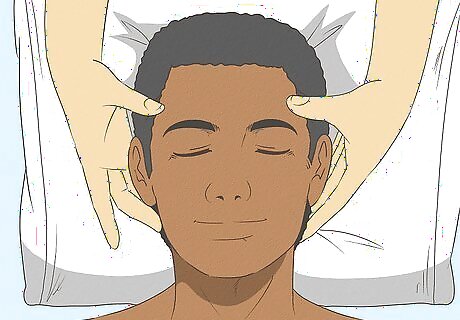
Practice self-care. It can be frustrating to cope with your fear. At times, you might feel impatient, or even angry with yourself. Try to remember to be kind to yourself. You are an important part of your own support system. Self-care means taking time to meet your needs. This includes physical and emotional needs. Make sure that you are taking care of your body. Get plenty of rest, exercise regularly, and eat a balanced diet. Give yourself a break. It can be stressful to cope with a fear. Treat yourself to a bubble bath or a massage to help yourself relax.
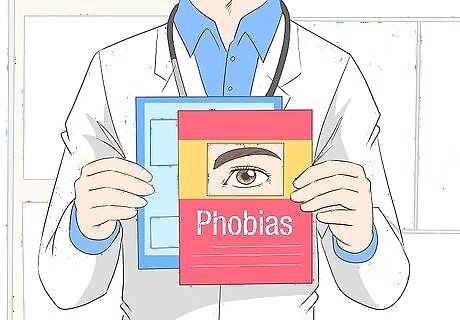
Educate yourself. Gaining knowledge can help you to overcome your fear. Try learning about phobias, and specifically, fear of hospitals. The more you know, the more tools you'll have to help yourself. Ask your doctor for resources. He might be able to provide you with some reading material. Head to the library. Ask the reference librarian to point you in the right direction.




















Comments
0 comment